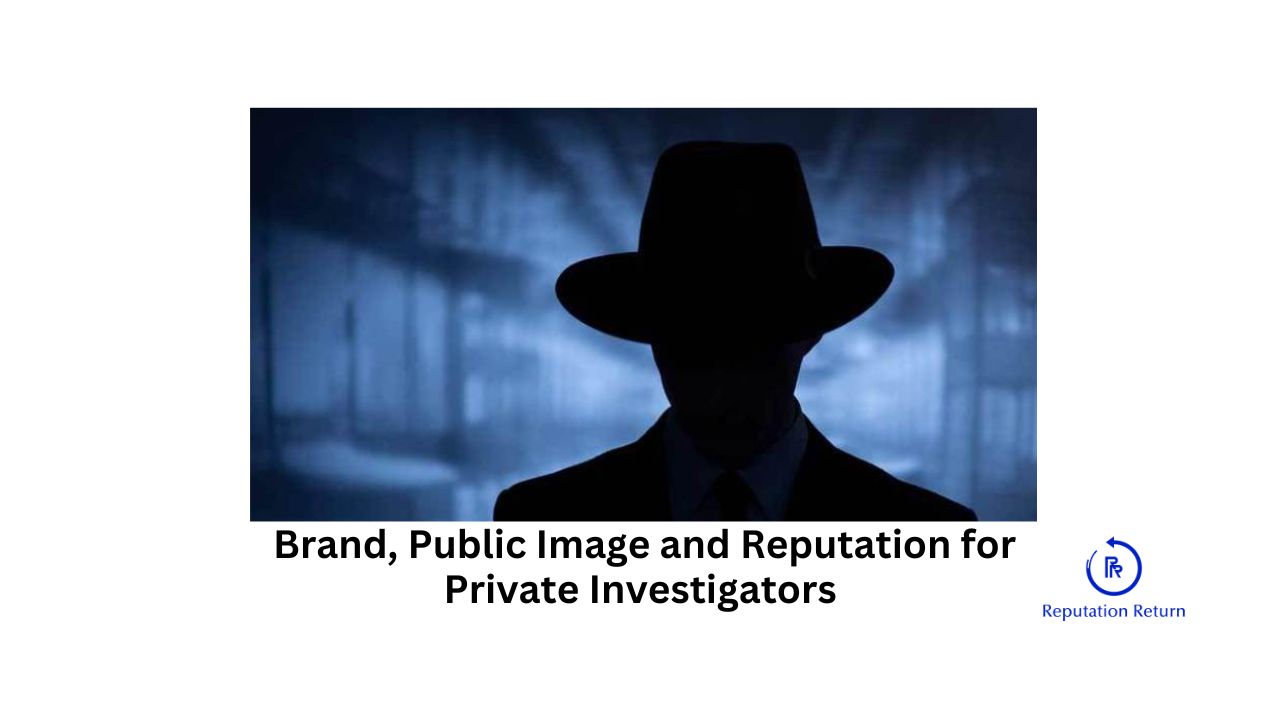In the realm of private investigation, maintaining a strong and positive presence is crucial for attracting clients and ensuring business success. A private investigator’s personal brand, public image, and reputation are three interconnected yet distinct aspects that significantly impact their professional journey. Understanding the differences and similarities between these elements can help a PI strategically manage their public persona and foster trust with clients.
Personal Brand
A personal brand is the deliberate and strategic effort by an individual to create and influence the perception others have of them. For a private investigator, this involves highlighting specific skills, values, and experiences that distinguish them from competitors. A PI might emphasize their expertise in surveillance, background checks, or fraud investigation. They might also highlight their ethical standards, commitment to confidentiality, and successful track record.
Developing a personal brand involves consistent messaging across all platforms, whether it’s through a professional website, social media profiles, or networking events. For example, a PI could maintain a blog or produce content that showcases their knowledge in the field, providing valuable insights to potential clients. This proactive approach helps create a clear and consistent identity that clients can relate to and trust.
Public Image
Public image refers to how the public perceives an individual based on their outward actions and the information available about them. For a private investigator, public image is shaped by their interactions with clients, media presence, public statements, and even the reviews they receive.
Unlike a personal brand, which is intentionally crafted, public image is often influenced by external factors. For instance, if a PI is involved in a high-profile case, their handling of the case, as well as media coverage, will shape their public image. Positive outcomes and professional behavior will enhance their public image, while any perceived misconduct or ethical breaches can tarnish it.
Managing public image requires a private investigator to be mindful of their actions and the potential public reactions. Regularly engaging with the community, being transparent about their processes, and maintaining a professional demeanor can positively influence their public image.
Reputation
Reputation is the cumulative perception of an individual based on their past actions and interactions over time. For a private investigator, reputation is built through consistent performance, reliability, and ethical behavior. It is the long-term result of how well they deliver on their promises and handle various situations.
Reputation is critical for a PI because it directly affects client trust and business sustainability. A strong reputation can lead to repeat business, referrals, and a steady stream of new clients. Conversely, a negative reputation can be detrimental, leading to loss of clients and difficulty in acquiring new business.
Maintaining a positive reputation involves delivering high-quality services consistently, handling confidential information with the utmost care, and adhering to legal and ethical standards. Building a reputation takes time, but it is an invaluable asset for long-term success.
Similarities and Importance
While personal brand, public image, and reputation are distinct concepts, they are interconnected. A well-crafted personal brand can positively influence public image, and a positive public image can contribute to a strong reputation. For a private investigator, all three elements are crucial for business success.
- Trust and Credibility: All three aspects help in building trust and credibility with clients. A clear personal brand demonstrates professionalism, a positive public image reflects trustworthiness, and a good reputation reinforces reliability.
- Client Acquisition and Retention: A strong personal brand and public image attract clients, while a solid reputation ensures they stay. Clients are more likely to engage the services of a PI who is perceived positively and has a proven track record.
- Differentiation: In a competitive field, a unique personal brand sets a PI apart from others. A positive public image and reputation further enhance this differentiation, making the PI a preferred choice for potential clients.
Role of Online Reputation Management (ORM)
Online Reputation Management (ORM) plays a pivotal role in building, optimizing, and protecting a private investigator’s personal brand, public image, and reputation. ORM involves monitoring online mentions, responding to reviews, managing social media profiles, and creating positive content to improve public perception.
- Monitoring and Response: ORM tools help track online mentions and reviews. Quick responses to client feedback, both positive and negative, show professionalism and commitment to customer satisfaction.
- Content Creation: Regularly publishing informative and relevant content helps in establishing expertise and positively influencing both personal brand and public image.
- Crisis Management: In case of negative publicity or reviews, ORM strategies can mitigate damage and restore a positive image, safeguarding the PI’s reputation.
Understanding and managing personal brand, public image, and reputation are essential for a private investigator’s business success. Through deliberate efforts and effective ORM strategies, a PI can build a strong professional presence, attract and retain clients, and ensure long-term success in their career.

